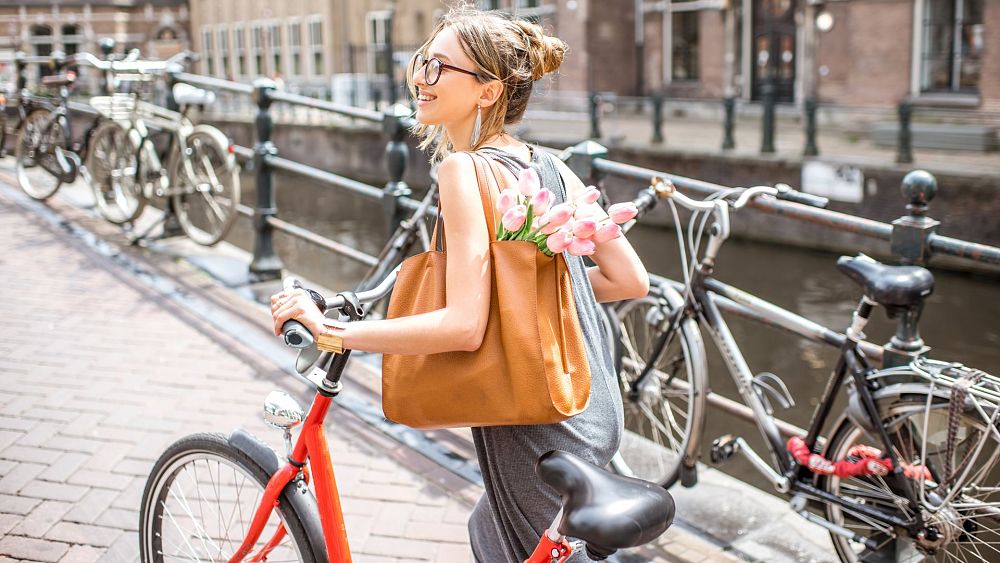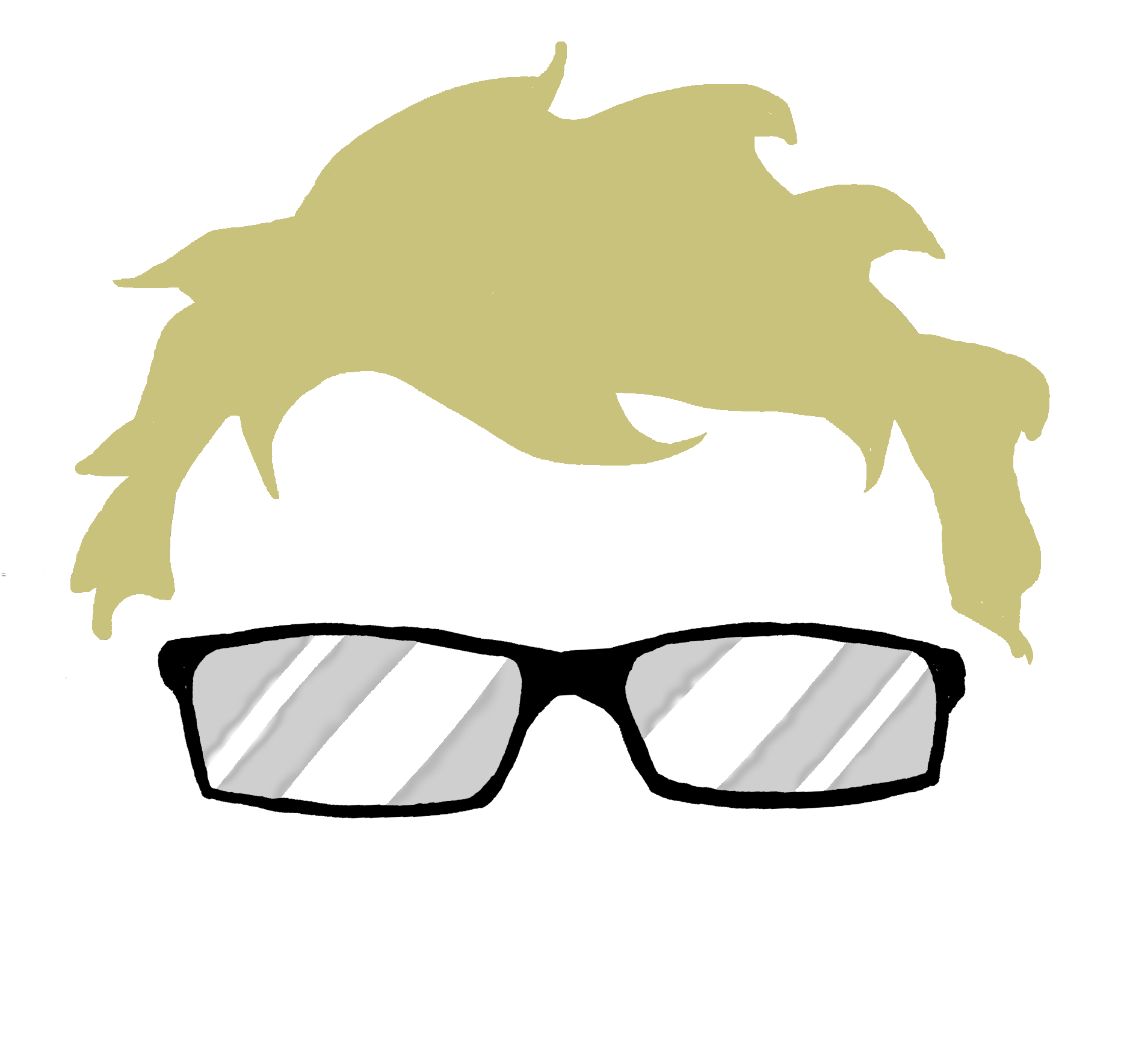Cycling is cool but that’s small-fry compared to if we all went vegan (or even just vegetarian)…
While I’m a card carrying bike nut and plant-based eater, I feel we can make more of a difference encouraging people to do things that are less all in.
Work commute too far right now? Maybe start replacing the small car trips with bike trips.
Veganism unthinkable? Maybe try a meatless day or two a week.
Something people can wrap their heads around, and after trying, realise they haven’t died.
While I’m also a card carrying bike but and plant-based eater, I think that in many places the answer is also better public transport. When I lived in a big city, busses, subway stations, trams, etc were always 5-10 minutes away, both walking and waiting for the next one.
I live in a smaller town now of ~40,000. However, only ~13,000 live in the actual “town”, roughly 20 minutes of walking. The rest of the people live anywhere from 10-60km away. Grocery stores can be anywhere from 10-30km away. Iove biking into work when the weather is nice, but it also snows six months out of the year. Even for a “small trip”, you’re looking at 20km round trip in hilly terrain to the nearest anything that isn’t a neighbor. Busses exist, but out in the countryside they’ll come twice around 6am and then twice around 6pm, and none at all during weekends. So if you’re not working in the middle of the week, you’re SOL unless you’re prepared to spend 12 hours in town.
It’s also a chicken and egg problem though, everyone has a cat because public transport isn’t great. But public transport isn’t great because there’s no demand, because everyone has a car.
This issue is definitely not only in my town, 70% of the country is dotted with small towns like this and the same issues. Not everyone is physically capable of biking 20km on a summers day, let alone in -20°C on a half meter of snow, so they have almost no choice but to drive.
I live in a town of about 20,000. The adjacent regional centre (80k people) is about 35km away. We’re the opposite of snowy, we have highs in the mid 20s here right now in the dead of winter, high 30s to mid 40s with high humidity in summer. I bike commuted to the regional centre for years, but again, I’m aware I’m a bit extreme.
Agreed better public transport is also important. We’re lucky, our buses run about hourly throughout the day, you are a bit screwed at night.
The luxury! It’s been a bit of an annoyance for us since we moved out of the town center and into the countryside… If we want to have a night out with drinks involved, either gotta book a taxi or have a nice friend to drive us (or one of us just doesn’t drink, but that sort of defeats the purpose of us going out for drinks together…)
The culture here is also just more car-centric. If I bike to work, which honestly is downhill almost all the way, all my coworkers look at me like I’m some Olympic athlete. Like cmon, it takes less than 40 minutes, it’s not exactly impressive.
Maybe try a meatless day or two a week.
I’m not a vegan but, are there really people who eat meat 7 days a week?
I live in regional Australia, there are people who eat meat every meal.
Does it not get boring?
I’m not the one to ask, I don’t eat meat.
Vegan (or even just vegetarian) is cool, but that’s small-fry compared to if we just stopped having freaking kids.
Well… I mean I’m not having kids either, but someone has to to continue the species, nobody needs to eat meat.
There’s nothing inherently bad about eating meat. We’ve been doing it for 100s of thousands of years. It’s that there are too many freaking people. I judge people way more when I see them with offspring, then I do their dietary consumption.
someone has to to continue the species
Why?
“Willful extinction” is not a productive way to end climate change.
You won’t convince people, so it’s DOA, but it’s also philosophically weak in the face of alternative views. Alternatives which also theoretically have humans in them and don’t obliterate the environment exist, meaning you are on the back foot here to justify an anthropocentric philosophy.
“Why do you think people should exist?” Can be an interesting discussion, but as an argument it’s not a great one.
You won’t convince people
I don’t have to. Birth rates in the developed world are plummeting.
And unless I’m mistaken, you are the one trying to convince people right now.
Birthrates are not plummeting to zero, if thats what youre implying. As people get more educated, they tend to have fewer kids. No one is considering having “fewer” kids because of the childs lifetime GHG emissions
Birth rates are plummeting to maintain what will probably be around 13 billion. That’s wildly distinct from willful extinction.
I… What? You made a post saying people should do x, I responded. Yeah we’re both trying to convince people of a thing, I’m not sure I see how that is actually relevant.
“[S]omeone has to to continue the species” —you, not me
You won’t convince people, so it’s DOA
That pretty much sums up any approach by humans to do something about what’s happening to the planet. Anything anyone throws out is realistically DOA.
And that is microscopic compared to levying massive fines on businesses that don’t go carbon neutral and passing global laws to protect the amazon and MESS UP any government that toys with it.
I’m doing my part. The life of one person creates so much waste and pollution.
And that is nothing compared to corporate emissions and air travel, but the internet LOVES telling you that how you live your life is wrong for moral reasons or due to some panic.
I say this as a chef that’s generally vegan friendly. We gotta stop blaming each other when we’re a drop in the bucket compared to big business. They got you attacking other people so they can do what they want with impunity.
Totally agree with your sentiment, we wasted so much time putting the pressure on the individual when the real culprit was Industry, there is no argument whatsoever there. That being said, the Agriculture Industry (food production in general) does account for a hearty chunk, about 25%, of all worldwide emissions, and that is without doing calculation for “land lost” costs, i.e. the reduction in forests we took by having agricultural industry there instead, and the emissions those forests could have negated.
Food is a serious driver of climate change. Meat, but especially beef, is the worse food in terms of the cost we pay in overall emissions. Moreover, half of ALL agricultural land in use is for pasturing animals. Beef being eliminated as a food product would incredibly help climate change and meet emission goals much faster. This video does a great job at summarizing the problem, is a generally reliable channel for informative mini docs, and provides a huge list of sources you can review there.

The problem with this is that while true, the solution for lower emissions will look different for every place.
I wish we had more bike-friendly infrastructures on France, right now everything is still adapted to a car-centered lifestyle…
As a Dutchie in rural France atm, is way too hily here and the nearest supermarket is a fifteen minute drive away. I couldn’t do my shopping by bike like back home even if I tried.
E-bikes, while more expensive, completely flatten hills. They’re also fantastic for carrying cargo, and yes, groceries.
True that, I always forget this factor.
My Hometown here in Germany lost out on about 3 Millions of funding for bike infrastructure in the last decade, because no one in the city government felt responsible to plan any infrastructure in the transportation department.
It’s never fast enough but we have the LOM law though : https://www.ecologie.gouv.fr/loi-dorientation-des-mobilites
Each time you launch road works.you have the obligation to take into consideration bike lanes.
Whilst I agree with the sentiment, it’s not possible for everyone to use a bike 100% of the time. Infrastructure does help, and I admit my UK city is certainly not very bike friendly, but even if it was it would be nearly impossible as everything is just too far away and/or you can’t transport what you need to on just a bike. We still need cars of some propulsion method or another.
Proper infrastructure and proper public transport which allows bringing bikes solve most problems.
With a cargo bike you can transport most things just fine, for stuff that can’t be transported by bike a shared car or delivery company can be used.
I hear where you’re coming from but this isn’t what the article said. Dutch people use other modes of transportation than bikes. Just not as much. There are use cases where cars are hard to replace but right now, we are using them for way too many things. Public transportation is another alternative to cars that is way to often overlooked.
Honestly, a friend told me a wonderful idea, which just makes me more disappointed in our governments lack of any real foresight:
They could’ve put a cycle path/walking path beside the HS2 rail line, would’ve been pretty darn useful for travelling large distances on bike. Even could’ve had camping grounds and analogues to motorway services at points along the route…
Canals are kind of a useful aspect for travelling around the country on bike as you can basically cover most of the country, but they aren’t wide enough/maintained enough to be truly viable.
why “people cannot bike 100% of the time” but"people cannot drive 100% of the time" is never an issue? There are way more people who cant drive than people who cant ride a bicycle and that didnt stop humanity from making ourselves dependant on cars.
I’m from the Netherlands and I don’t use a bike 100% of the time either of course. I’ll ride it for any commute under 10 km that doesn’t require me to transport any large or heavy items, though. I’m fortunate enough to have a work place within cycling distance, so I’d estimate I use my bike about 70% of the time I need to go somewhere. Needless to say, this lowers my carbon output quite significantly compared to using a car.
Car sharing is pretty nice for that niche
It probably would be helpful, but it wouldn’t be that useful in the tropical regions, where you have monsoons with strong rain/wind and hot summers.
Physical exertion in the sun is not always fun.Tho, It’d be fun when the destination is near and the weather is decent.
In places like Denmark, The Netherlands, Finland and so on, people bike in pretty much any weather without huge issue, rain, snow, heatwave, doesn’t matter.
Proper public transport where you can also bring your bike does a lot too.
In places like Denmark, The Netherlands, Finland and so on, people bike in pretty much any weather without huge issue, rain, snow, heatwave, doesn’t matter.
Is their weather mild/good most of the time?
Or do their bicycle paths have good shades?I live in a small town in Belgium and we have a saying that says: “there’s no bad weather, only bad clothing”. Granted, the weather here is mild. Doesn’t get too cold, not too hot (except for this week). We do get a lot of rain though, but nothing that a pair of rain trousers and coat can’t handle ;) Biking infrastructure is something else though… It’s far from perfect over here.
Call me a heretic, but in a situation where it’s completely untenable to get any exercise, something like a moped or a very small electric car (like, smaller than probably exists in the us market) can be a great improvement over our current situation with giant trucks and suvs that consume either tons of gas or require batteries big enough to power hundreds of mopeds or e-bikes. What we need isn’t a large group of people doing everything perfectly, what we need is everyone doing what they can, imperfectly. Then we improve from there.
Sold in car months ago and use an electric scooter to get around. I don’t miss the car at all. I don’t have a commute though.
As someone who once HAD to commute for a 45 minute car ride to work… not all commutes work with this. Public transit can help with a lot of those, but unless we rezone and rebuild most cites for shorter commutes, it won’t replace all cars.
Yeah, it’s way more a problem with urban design in my opinion. In a lot of parts of the US, including where I’m at, a lot of cities are just… One road. Maybe two. You just continue to add stuff to the road and then become surprised when traffic happens and then it’s time to try (and fail) making more roads. It’s a city on a stick. Being a cyclist means risking your life to ride near the side of a street where there is no sidewalk and praying to God people can see you. And then every single commute is much longer than it needs to be.
I do not like it… but a car is the only reasonable option for cities designed so poorly.
The Dutch drive, too, they just tend to cycle for shorter trips. No one serious is seriously saying ‘replace all cars’ as a solution for the foreseeable future
I am totally for more cycling… but imo from a policy perspective in most cities we just need more public transit and maybe some more bike lanes in areas they could help.
This is right. I desperately want to cycle places and take public transit, but in Los Angeles, things have been built with such distances that this often means 2+ hour trips if not done by car. Cities need to rezone and re-prioritize for better public transit in a lot of areas to reach this vision.
Portland, Oregon has bike racks on their buses. It’s entirely possible, with appropriate infrastructure, for people to combine cycling and public transit in order to get from point A to point B efficiently without a car.
We have that in LA too, just gotta signal it and hope your bike doesn’t get jacked.
From the article:
Dutch people cycle an average of 2.6 kilometres each per day. If this pattern was replicated worldwide, the study suggests, annual global carbon emissions would drop by 686 million tonnes. This mammoth figure exceeds the entire carbon footprint of most countries, including the UK, Canada, Saudi Arabia and Australia.
I think a lot of people see “cycle like the Dutch” and think it means we must all abandon all other forms of transportation. Instead this article says if every nation’s national average for cycle miles traveled per day was at least 1.62 miles, we could greatly curb our carbon emissions. 1.62 miles is a very achievable goal in my mind. It doesn’t necessarily mean every individual must reach that amount per day (unless I’m misunderstanding), it just means the average overall. Others may go more, others less. Others could forgo it entirely, opting instead for walking, public transit, electric car (if it’s the only option), or a combination of all four. I’m certain that not every single person in the Netherlands rides a bicycle, either. We need people to understand this and push for increased safety and funding for alternative forms of transit, so that people can choose to do so safely. Especially in sprawling countries like Australia, Canada, and the USA.
This would only be possible if the urban places really migrated to this kind of system since it isn’t entirely feasible in certain places of the US.
For instance I grew up in the US South, specifically in farm country. The closest grocery was 30 minutes away by car. School busses took an hour or more from pickup to dropoff. No one in those kinds of communities are going to stop using a car for biking or public transport because it would take way too long to complete tasks. Switching to electric cars is theoretically a good idea, but we don’t currently have enough infrastructure to support it (and these places in the South definitely don’t). Plus, there are places still on coal and gas for energy, so by increasing their energy needs, you are essentially increasing that much more environmental damage. (I am not against electric cars btw, just see the pros and cons.)
On the other hand, where I live now is a suburb of a huge metro that has groceries, schools, and healthcare everywhere. It would be completely possible for us to use only public transport and/or biking because the community is more dense. These are the places that really need the push for more environment-friendly services, which would decrease our destructive tendencies enough for those places who can’t jump on this to catch up.
Totally get that. I grew up in a place much like the one you describe here, in the deep south too, even. My town had a population of ~300, and our commute to school and grocery stores took roughly the same length of time. That said, we did still have a school bus. If we didn’t, we probably would have been home schooled, just due to the commute. Given the large amount of people living in that town over age 70, I can imagine the benefits of say, a bus that took people to the grocery store and back. It would be life changing for some people in that town, and could occur if we allocated funds to improve public transit/alternative transportation nationwide.
But no, I don’t see these communities going all in on bikes, obviously not. Luckily, we aren’t really talking about these communities. At least not primarily. 80% of our population is in cities, and we should be fixing things there, not in rural areas where the changes don’t make sense. A person in this thread mentioned being from a rural town in the Netherlands, and how they had bikes, but still used their car lots of the time. I think we can both agree, no one with any serious political power in the Netherlands is coming to take rural citizen’s cars away. We can instead focus on improving climate costs in other ways in rural areas, like shuttle buses for the elderly, like I mentioned. Or, for example, improving access to local agriculture with CSA’s or farmer’s markets, creating classes teaching people how to grow their own food, replacing appliances that rely on gas and coal with more climate friendly alternatives (possibly through government buy backs to make this feasible for people with low income), and yes, replacing ICE cars with electric cars (an overhyped technology for sure, but one that actually makes sense for this population). The infrastructure isn’t there for electric cars today, but we also didn’t have gas stations on every corner when ICE cars first started selling. That will all come in time, and will come faster if people demand it.
I live in a mid size US city now with bike trails that can take me to the suburbs and back in an hour or less. We have light rail and buses that can do the same. This sort of infrastructure could be improved to be more protected from drivers (in the bike lane sense) so that more are encouraged to ride it. The public transit here could be made more affordable (transit paid by tax instead of upfront fair) so that people use the public transit over cars or even ride sharing. This type of public transit/bike infrastructure could be applied to many many more American cities. Unfortunately, cities like this are the exception, not the rule, for our country. I think that’s a shame.
Tl;dr - I don’t think we disagree. This is overwhelmingly a solution for the cities and suburbs, where most Americans live. There are lots of things we can (and have to) do to fix climate change. Bicycles shouldn’t be a golden hammer, but they are a very underutilized tool that can help fix this problem.
We’re absolutely on the same page! I am hoping there is more incentives created for the electric bike movement for urban areas. Some states are successfully adopting and pushing through rebates for those who purchase one, so hopefully this inspires other states to do so as well. I think ebikes are much more friendly for people to use since they’re not as daunting for longer journeys.
Completely agree. Right now, I think a lot of people are interested in trying ebikes but the cost for some is too high for something that people aren’t familiar with. The ebike rebates should help, I hope.
Hard to use bikes a lot here in Finland. If you live in one of big cities then yes maybe but even then the winters are long, snowy and cold.
Some cities winter cycle just fine. Oulu is often in the news about that.
But yes, it gets hard if there’s distance and frequent bad weather and hostile traffic and bad road maintenance.
Oulu seem to have it pretty nailed down in their infrastructure, even in winter, a lot of people cycle
the issue, in the end, is infrastructure. Unfortunately not many countries devote enough resources to allow it
Left LA in 2018. went from a 10min bikeride (1.25hr workout) to a 3-5hr commute because “promotion”… now I don’t even have a license, i run my 70 seat restaurant via cargo bike just fine (only meats, beer/wine delivery).
went from a 2-3hr drive to the beach (++ parking fees) to 5 min bike, 10 min walk to one of several beaches.
multiple mountain hiking trails within 20 min, bus/train with regular service etc.
We could not be happier in our little slice of socialist hell…
Where at? And how much did it cost ya? I’ve been wanting to move to a more bike friendly area but even with $150k down my mortgage would double and I’d lose two paying roommates.
I live in a tropical country… I would love to cycle to work but (i) roads are a living hell and (ii) it’s hot and humid af and i look like I fell into the ocean after a 20-minute ride.
(i) is fixable with good infrastructure, (ii) isn’t :(
Are you in SM by any chance?
Yeah right, keep putting this problem on “everyone” because those bigger poluting companies can do nothing to change their course of action.
I think this shouldn’t be read as an individual call to action as in ‘everyone has to do their part and start cycling’.
Rather, it should be a call for governments to support a changing traffic and transportation infrastructure.It’s a chicken and egg problem. No one cycles because cycling infrastructure sucks, so politicians don’t care about cyclists so cycling infrastructure sucks. To break the pattern we need to soften things at every link of the chain. That means going somewhat our of our way to cycle and to pressure politicians to improve things.
Personally I am currently I the process to moving to a more walkable city where I will be able to cycle to do most chores. It will increase my commute dramatically but I don’t go in every day and that’s a sacrifice I’m willing to make in order to be free of my car. I tried biking in my current city but it was simply too dangerous. I was having near collisions weekly.
Aside from emissions, cycling is also healthier, safer, more pleasant for everyone else.
I see it less of a question of “where to put the blame?” as more “in what environment we want to live?”.
Cycling puts also less money in the pockets of bigger polluting companies, and you can still blame them on the ride for all the good reasons.
I asked a couple with a 3 year old daughter how they get around without a car, and they said they cycle by default and use a car-share service occasionally for longer journeys. The amount they save on insurance alone pays for the car-shares and short term car rentals to get out of the city for a few days.
Suburbs and rural areas can benefit from electric bikes to an extent. And a more deliberate focus on building transit oriented communities should help quite a bit.
Transportation and electric power are 38% and 33% of co2 emissions in the US respectively.
https://www.cbo.gov/sites/default/files/images/full-reports/2022/58566-fig1_emissions-sector.png
Passenger vehicles are 58% of co2 emissions of all transportation in the US.
https://www.cbo.gov/sites/default/files/images/full-reports/2022/58566-fig4_emissions-type.png
Electricity generation breaks down as: Petroleum (crude oil and natural gas plant liquids): 28% Coal: 17.8% Renewable energy: 12.7% Nuclear electric power: 9.6% .
The great news is that infrastructure to make cities more walkable and bikeable is actually really cheap. Like, compared to car infrastructure that can move a similar amount of people it’s nothing. It’s mostly an issue of political will to actually build the stuff.
Cool. Now how do we make winter more amenable to cycling?
wear more clothes
YouTube: Not Just Bikes - Why Canadians Can’t Bike in the Winter (but Finnish people can)
how do we make winter more amenable to cycling?
See chapter 5: ‘Second: proper winter maintenance’.
You can ride a bike to work or the store around here, but you’ll be walking home. Bikes are way too easy to quietly steal.
Bicycle theft is also a problem in the Netherlands, but they still do it. There are also lots of people not in the Netherlands who bike to work and don’t have their bikes stolen.
That’s not the problem. The problem is car culture.
In the Netherlands they have functional bike parking, which makes it a lot harder to steal bikes. They also use wheel locks, which are much harder to cut without damaging the bike. There are also sites like bike index that let you track your bike serial number in case it gets stolen. If you use bike index and your bike is stolen there’s actually a pretty good chance it will be returned. Also, if you buy a bike check it on bike index first to see if it’s stolen.
Oh we’re doing the anti-bike thing? Fun! Riding a bike to work for me would take 3 hours. Not everyone fits in the same mold.
Riding a bike to work for me would take 3 hours. Not everyone fits in the same mold.
Then we are mostly talking about other people. Most car trips are so short in distance, they could easily be done by bike.

Yes, certainly. Beyond just talking about bikes most new urbanists are trying to encourage walkable cities and transit oriented development. Walkable cities, which also tend to also be bikable, are cities designed like they were a hundred years ago, where it’s possible and even encouraged for most people in the area to be able to walk between home, work, dining, entertainment, shopping, and recreation.
Transit oriented development is urban planning that locates the above destinations in proximity to public transit stops. Furthermore public transit is prioritized above car traffic through the use of separate rights of way so that when car traffic backs up the public transit is not delayed.
When you add more lanes to accommodate more car traffic on a road that gets too many cars, you attract more car traffic until that road is just as congested as it was before. But this induced demand works both ways. If you add more walking and bike infrastructure that’s actually usable and feels safe to get from where you are to where you want to go you’re more likely to walk or take a bike. If taking the bus or train is faster, easier, cheaper, etc than driving a car a lot more people will take that transit.


















